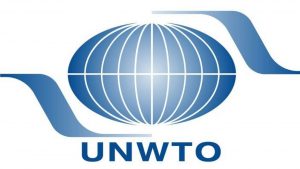MADRID, 23 June 2020: Governments around the world have responded quickly to mitigate the impact of Covid-19 on their tourism sectors, according to new research from the World Tourism Organisation (UNWTO).
As many destinations begin to ease restrictions on travel, UNWTO’s Briefing Note on Tourism and Covid-19 illustrates that of the 220 countries and territories assessed, 167 have reported taking measures aimed at mitigating the effects of the crisis.

Of these, 144 have adopted fiscal and monetary policies, while 100 have taken specific steps to support jobs and training, both in tourism and other vital economic sectors.
UNWTO secretary-general Zurab Pololikashvili said: “In many countries, particularly in the developing world, tourism is a major supporter of livelihoods and economic growth, and so it is vital that we restart tourism in a timely and responsible manner.”
UNWTO found that the most common form of economy-wide stimulus packages adopted by governments focus on fiscal incentives including exemptions or deferrals of taxes (VAT, corporate income tax), as well as providing emergency economic assistance and relief to businesses through monetary measures such as special credit lines at reduced rates, new loan schemes and state banking guarantees aiming at address liquidity shortage.
Small businesses, which make up 80% of tourism, have received targeted assistance in many countries. The Briefing Note takes a closer look at all tourism specific measures implemented by countries and showcases examples of fiscal and monetary measures, initiatives to protect jobs and promote training and skills, market intelligence initiatives and public-private partnerships, as well as restarting tourism policies.
Europe leads the way in tourism restarting policies.
According to this latest UNWTO research, 33% of destinations in the region have introduced tourism-specific policies. In Asia and the Pacific, 25% of destinations have adopted restarting tourism policies, while in the Americas this proportion stands at 14% and in Africa at 4%.
To restart tourism, restoring trust and confidence in the sector is crucial. In countries where tourism is back on the path to reignition, health and sanitary protocols, certifications and labels for clean and safe practices and safety “corridors” between countries are the most common measures.
With domestic tourism as a priority at the moment, promotional campaigns, product development initiatives and vouchers begin to emerge in a few countries.







